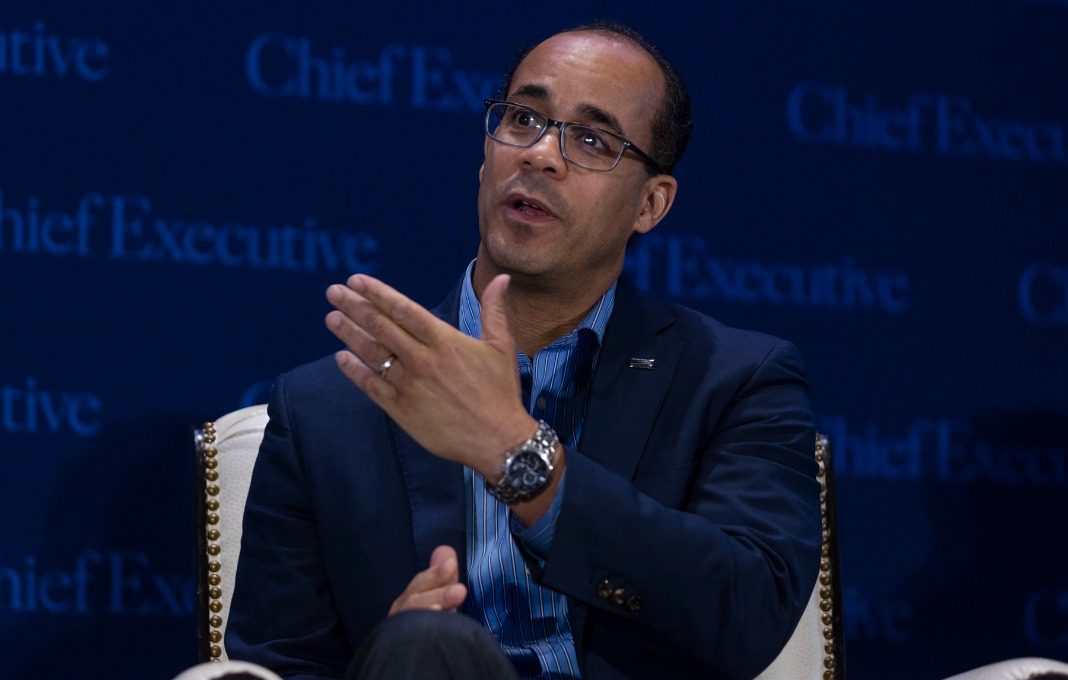Ronald Hall Jr. thought his automotive-seat manufacturing company, Bridgewater Interiors, had it tough during the pandemic—and it did. But flexibly instituting health and safety protocols and relying on the constancy and quality performance of his workforce allowed Hall to lead the $2-billion Tier 1 supplier through the storm.
Then came another storm, the post-pandemic era, and the CEO of the Detroit-based company is having to lead Bridgewater through a whole new set of challenges that involve the supply and satisfaction of labor, rising costs, the long-term dependability of demand from Bridgewater’s automaker customers and the future of the industry’s electrification revolution.
“We’re having a not-great year, and going back to some tools of lean management and Six Sigma is a lot easier,” Hall recently told attendees at the Chief Executive Manufacturing Leadership Summit in Detroit. “The muscles have been atrophied, but the memory is still there. We’ve found ourselves leaning into those principles a lot more, thinking all the way back to 2009, the only year [Bridgewater] lost money,” during the Great Recession. “You get religion real quick when you’re losing that kind of money.”
With some lessons for other manufacturing chiefs, Hall shared how he and Bridgewater, a joint venture of Epsilon and Adient, have been addressing new challenges:
Labor calculus
Big compensation gains won last fall by the United Auto Workers in the union’s strike against the industry’s three traditional domestic OEMs “changes the calculus for how much more aggressively we want to bring in automation,” Hall said, as the gains put upward pressure on labor costs throughout the industry.
Yet, he noted, as in many manufacturing operations, there’s a limit to how much Bridgewater can eliminate labor costs by automating. “We’re still a long way from where a robot can take a seat back and put it over a piece of foam and connect the foam and align the Velcro and connect all the snaps,” Hall said. “Getting aggressive about that is more expensive because the low-hanging fruit for automation—materials-handling automation and the way we move things around the plant—has already been done. How to continue to get greater efficiency and hold costs down is a headache for every business.”
Sustainability demands
While auto suppliers such as Bridgewater are only beginning to figure out the implications of generative artificial intelligence on their business and operations, the company is still dealing with a technology imperative that already has made itself felt and is continuing to do so: sustainability.
“The big driver now is light-weighting of seats and trying to do so with materials that are a bit more environmentally sustainable,” he said. “Seat foam is a lot less toxic than it was 25 years ago, and it will be less so five years from now. Seat covers in the car will continue to be leather at the highest levels, but at the value-brand and lower levels, it will be more-sustainable materials. Vinyl doesn’t work for that.
“So what can you do to get [consumers] to accept fabrics? Many can be more sustainable, but fabrics aren’t as popular at higher trim levels. How can we make them cooler to have people accept them?”
Customer footprint
Bridgewater’s 2,400 workers currently make seats for 10 vehicles at four plants in the U.S., three in Michigan and one in Alabama. Meanwhile, the geographic center of domestic automotive production, even before the onslaught of new electric-vehicle plants, has been moving toward the Southeast.
“All the development has shifted to the Southeast in the last 20 years,” Hall noted. The higher labor costs in Michigan because of the UAW settlements are exacerbating the trend, he said, as non-Detroit Three plants in the South and Southeast largely remain un-unionized.
“That’s a problem. We’re in the process of trying to develop some more opportunity for us in the Southeast. We’re also watching what is happening with auto manufacturing explode in Mexico, and with the Chinese investing heavily there now. In 25 years, is there going to be auto manufacturing in the Upper Midwest? The jury is still out.”
Selling manufacturing
Bridgewater’s workforce has remained very stable over the years, but the post-covid era has given many American workers the itch to demand more from their employers—or try a new employer, in a labor-scarce environment. Bridgewater has responded with a number of job- and culture-enhancing moves, but one thing it needs help with from all manufacturers is to make industry more appealing to young workers.
“Young people learn everything digitally now, and industry could benefit from making a big marketing push,” Hall said. “That would be helpful. Factories are completely different now than they were. There’s a real tension between, on the one hand, recognition that we’re becoming more of a knowledge economy and need higher levels of formal academic training, and the fact that there’s still a lot of [other] work that needs to be done.
“We need more PhDs and manufacturing engineers, but we also need more carpenters and millwrights and electricians and people who enable us to put things together and make them go.”








